10 pet-friendly house plants – to keep cats and dogs safe
While certain plants might look and smell beautiful, they can actually be harmful for our pets
- (opens in new tab)
- (opens in new tab)
- (opens in new tab)
- Sign up to our newsletter Newsletter
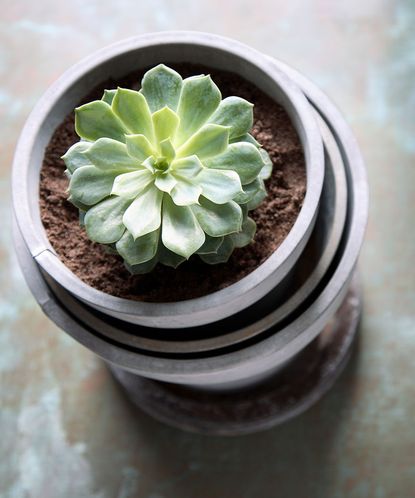

Pet-friendly house plants are a must if you're populating your home with greenery but have pets – and particularly young, curious ones – in the house. To keep pets safe, we spoke to the plant pros at Lazy Flora – and they revealed 10 of the best pet-friendly houseplants that are non-toxic to cats and dogs. Plus, we've listed a few to avoid having indoors, too.
See: The top 10 house plants – that all interior design lovers should know about
10 pet-friendly house plants
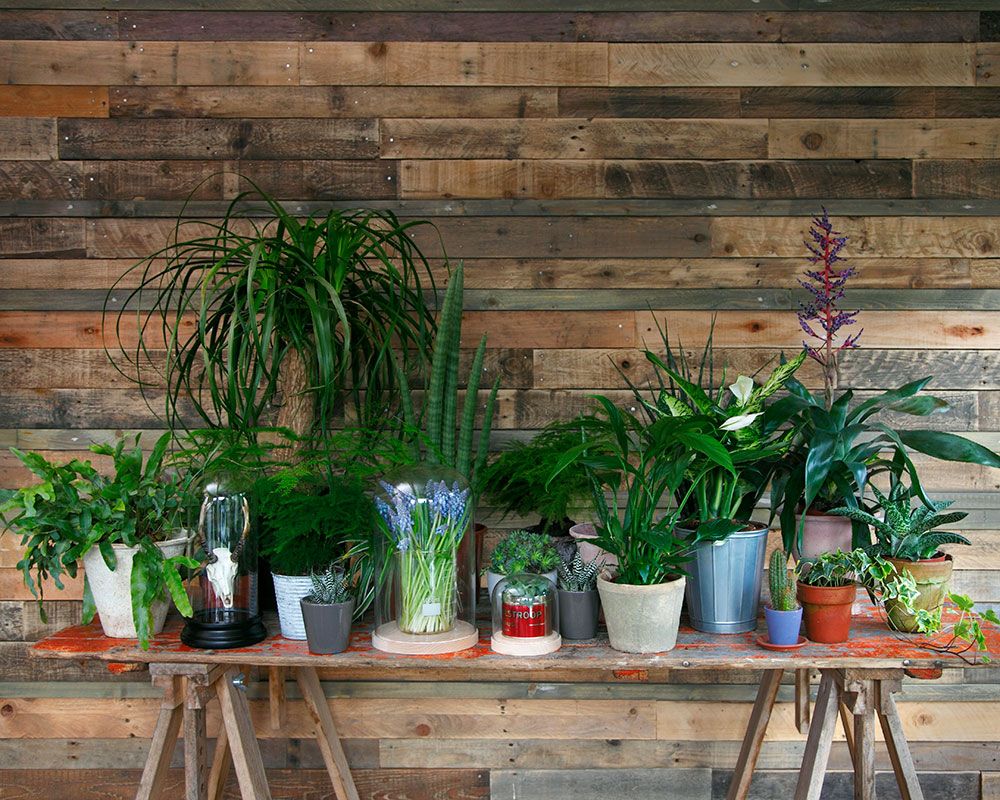
Autumn crocus can cause liver and kidney damage, and every part of a lily is toxic to cats. Others to avoid include ivy, Elephant's Ears and the ZZ plant. Fortunately, many plants, and house plants in particular, are completely safe to keep around animals, including Calathea, Spider Plants and African Violets.
1. African violet
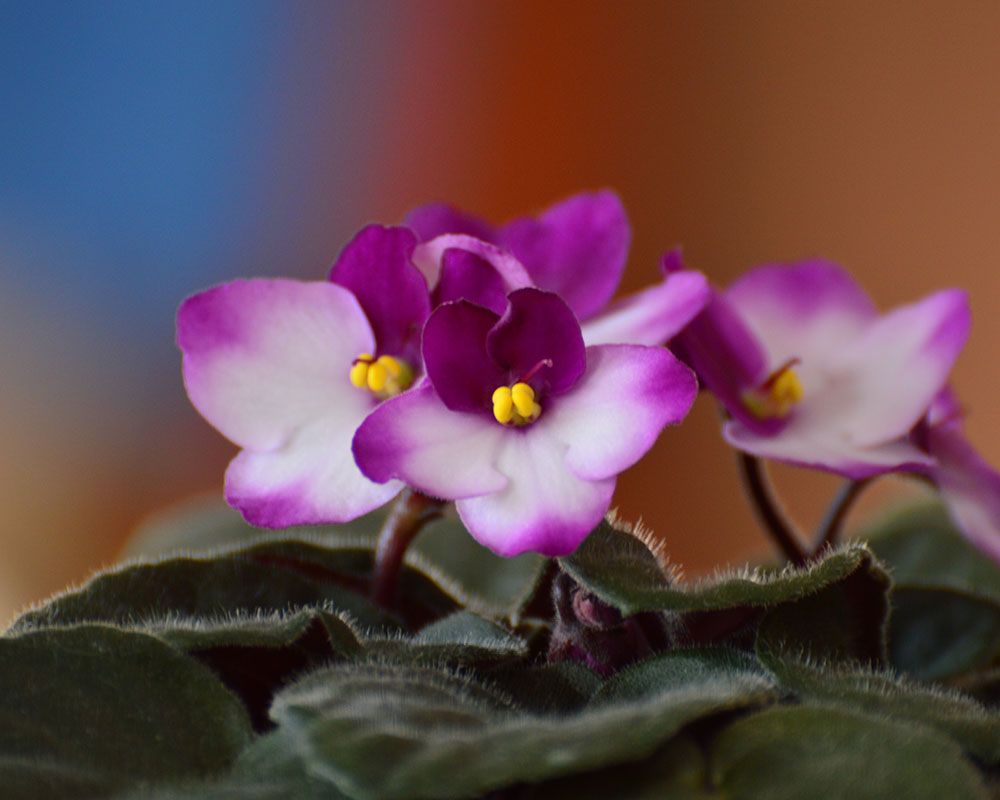
This delicate little plant, also known as the Cape Marigold, will flower profusely given plenty of direct sun, as long as you don't allow the roots to sit in water. Your furry friends probably won't be very interested in this one, because it doesn't have wavy leaves or petals, and has no scent.
2. Boston fern
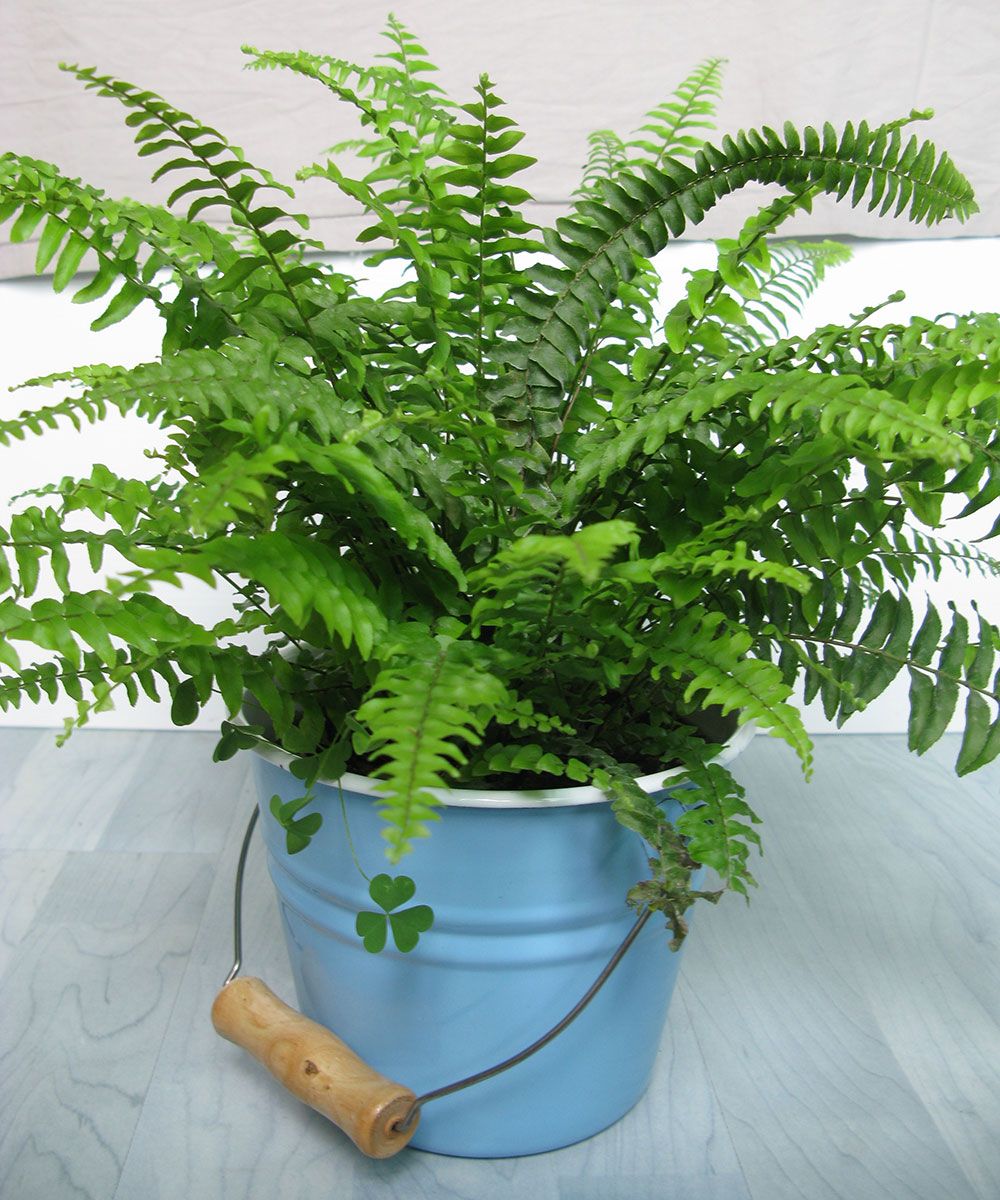
The Boston Fern has different light requirements at different times of the year. During the spring and summer, it needs a shady location. A north-facing window is ideal. During autumn and winter, it needs more light, and will benefit from at least a couple of hours' direct sunlight per day. At all times of year, it will not tolerate full sun or total shade. It is a great option as a bathroom plant.
3. Burro's tail
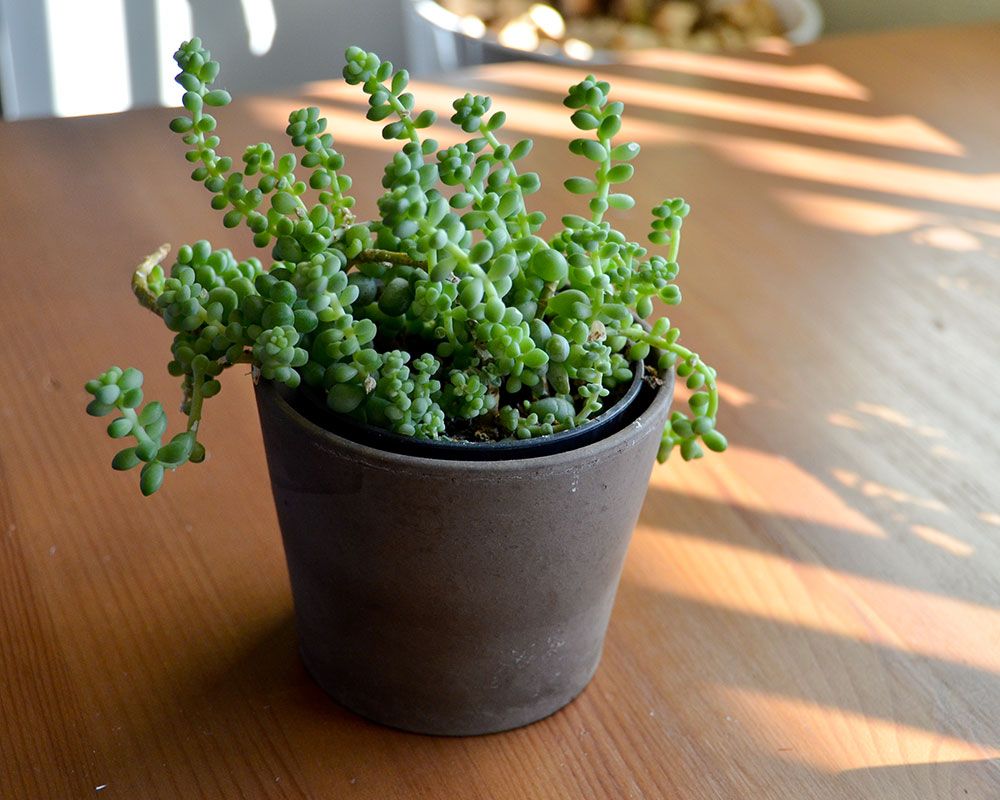
Burro's Tail is a succulent that loves sunshine and direct sunlight, as they originate in the dry heat of Honduras and Mexico. The stems will trail over the side of the pot as the plant grows, which may tempt curious pets to investigate, but this plant won't do them any harm if they do. Keep them high or low – the burro's tail is a beautiful addition to any home.
4. Calathea (red)
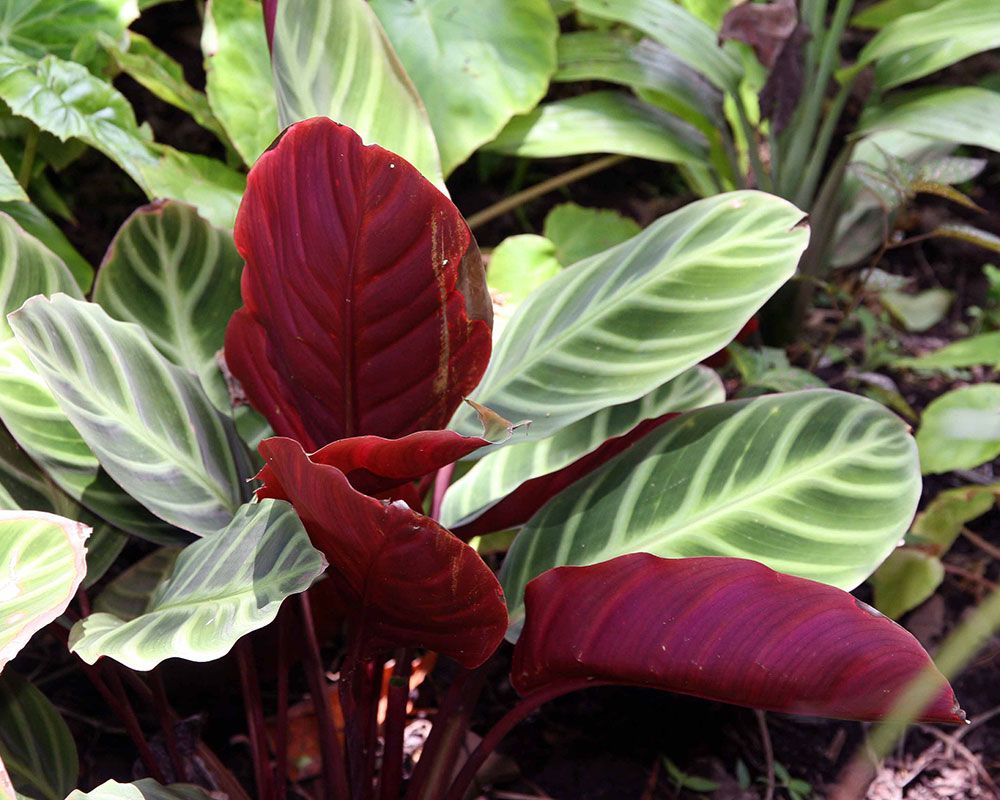
This plant loves indirect light but does not enjoy direct sunlight as this will burn the leaves. North East or West-facing rooms are most suitable. The main attraction of this plant are the leaves, but it may occasionally throw up small white flowers too. Coming from rainforest, this plant enjoys humidity.
Keep the soil slightly moist soil most of the time, but do not allow it to remain wet or waterlogged.
See: 5 low maintenance house plants – and their amazing health benefits
5. Dwarf mountain palm
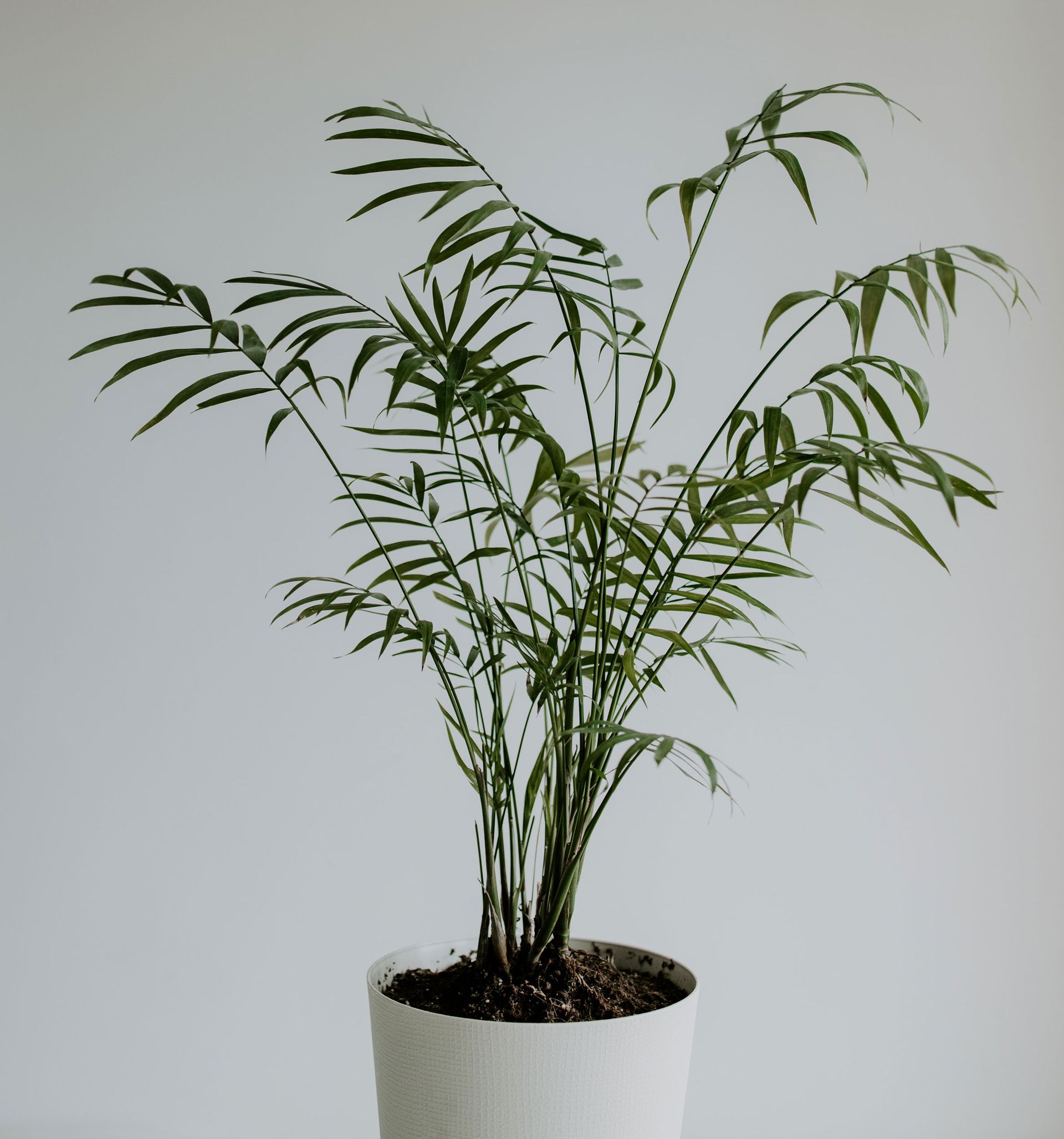
The dwarf mountain palm is one of the best plants for purifying the air. This plant will grow well in almost any location within the home, although it is best kept out of direct sunlight. It is extremely tolerant of varying light levels and will do well in a shady corner.
This palm is a very slow-growing plant. It doesn't require a lot of watering. Water it just a little when you notice that the soil has dried out. The tips of the leaves will turn brown if it doesn't receive enough water.
6. Echeveria
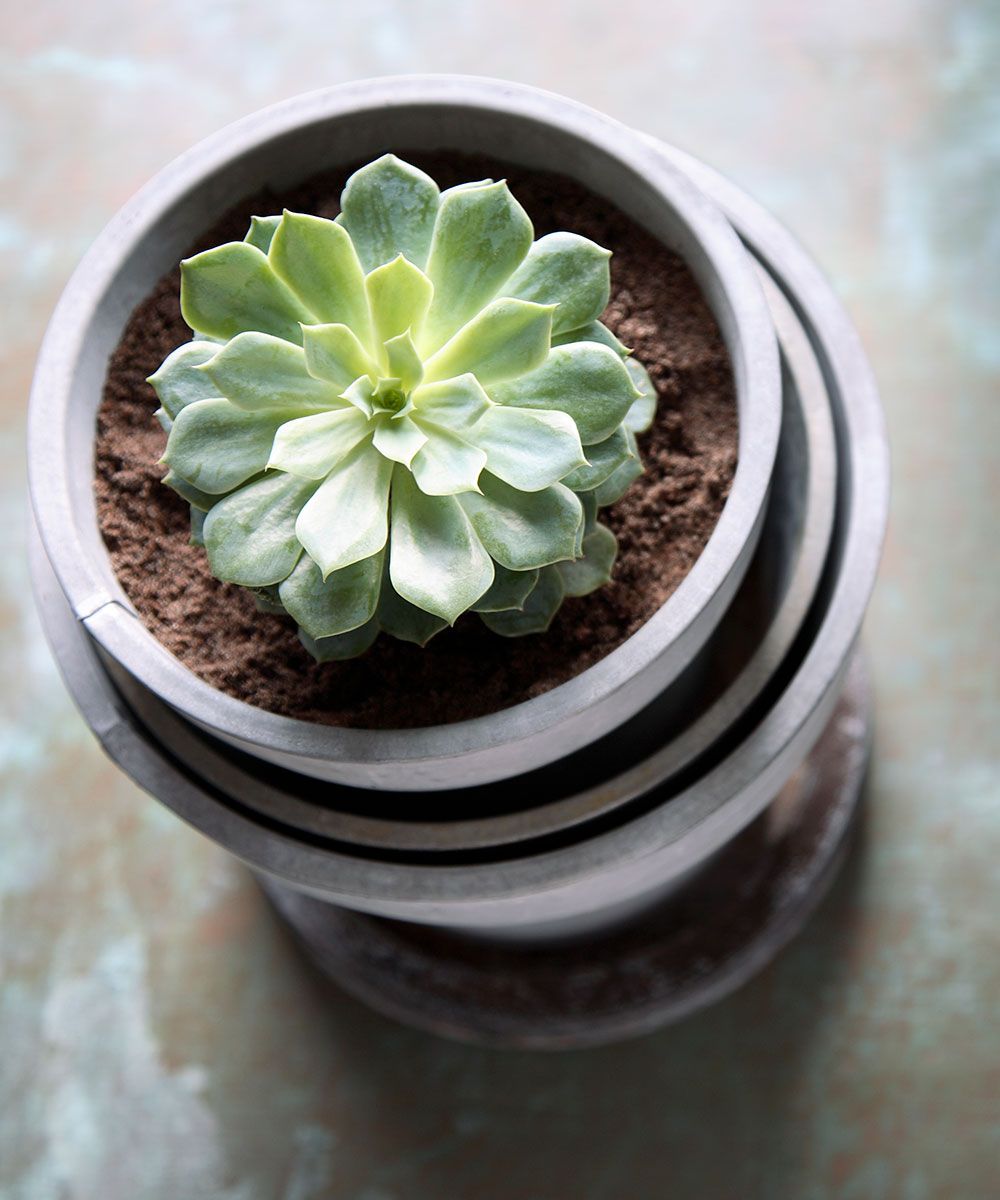
With their vibrant colours, Echeveria are attractive to cats and dogs. Most Echeverias are pet safe, but always check the individual plant if you are unsure, as this is a large group of plants.
See: Health benefits of house plants: Why you need greenery while working from home
7. Maranta
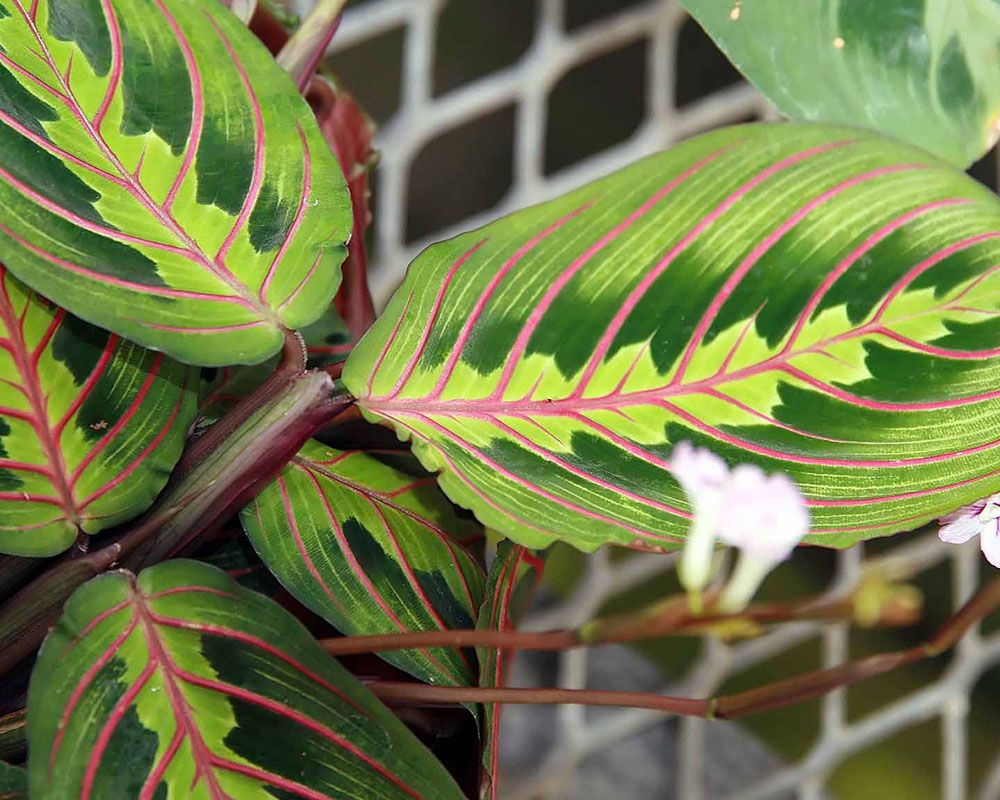
The leaves on the Maranta move down during the day and raise up at night, as if in prayer – hence its nickname, the 'Prayer plant'. But don't worry about the position of this plant’s leaves, as they pose no risk to your pets! This is also a lovely option as a bedroom plant.
8. Phalaenopsis orchids
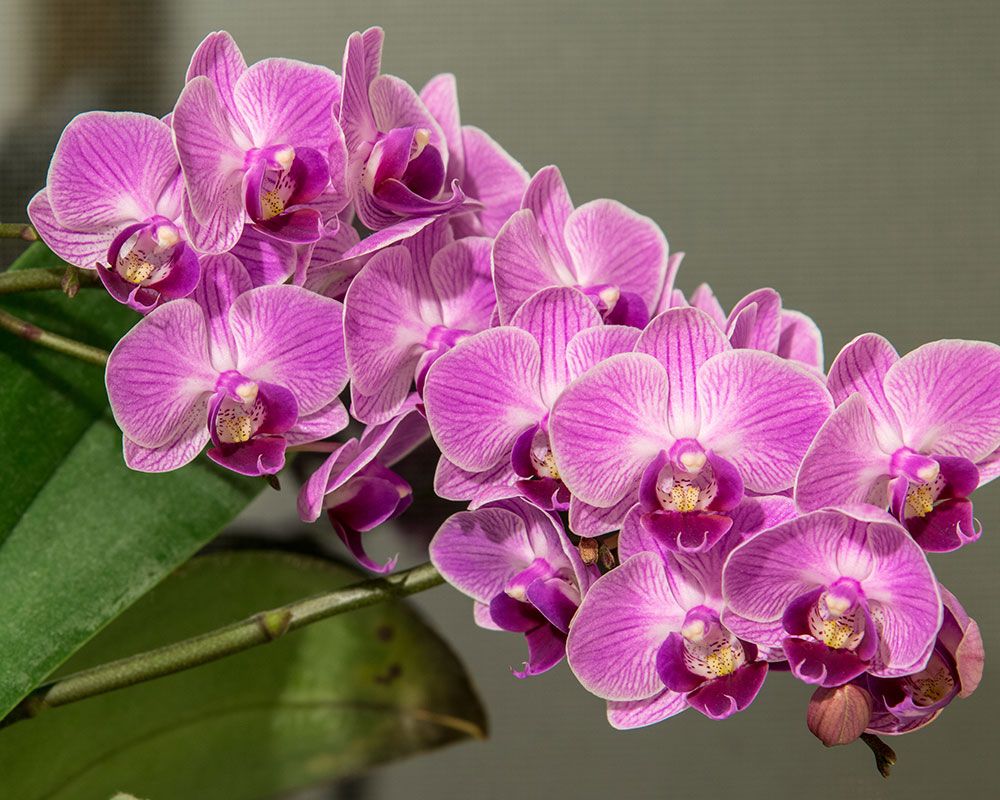
One of the most common plants in supermarkets these days, and for good reason, phalaenopsis orchids are some of the easiest-to-care-for and most spectacular orchids around. They require minimal watering and maintenance, and will flower twice a year if you keep them in the right conditions.
9. Spider plant
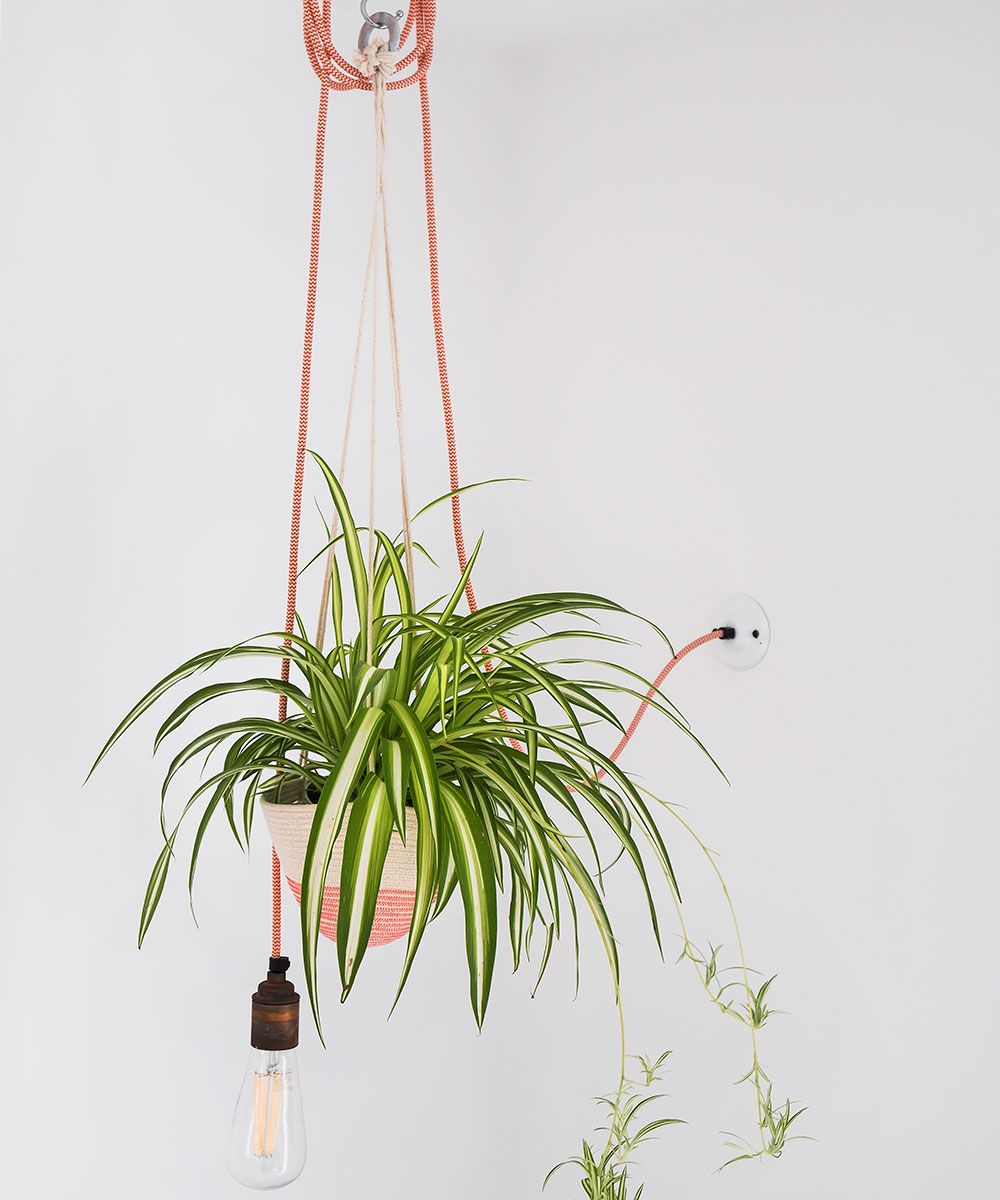
The spider plant is so-called because in summer it produces mini plants called 'pups' which look a bit like spiders. The 'pups' are often more brightly variegated than the parent plant. Don't let too many babies hang on the mother plant, because they will take a lot of energy. You can always remove the babies and plant them elsewhere to create more spider plants. What's more, these easy-to-care for plants offer a range of unique spider plant benefits for indoor spaces such as air purification and improving indoor humidity.
- See: Monty Don's house plant watering tip – stop yours turning brown
10. Vrieseas (Flaming sword)
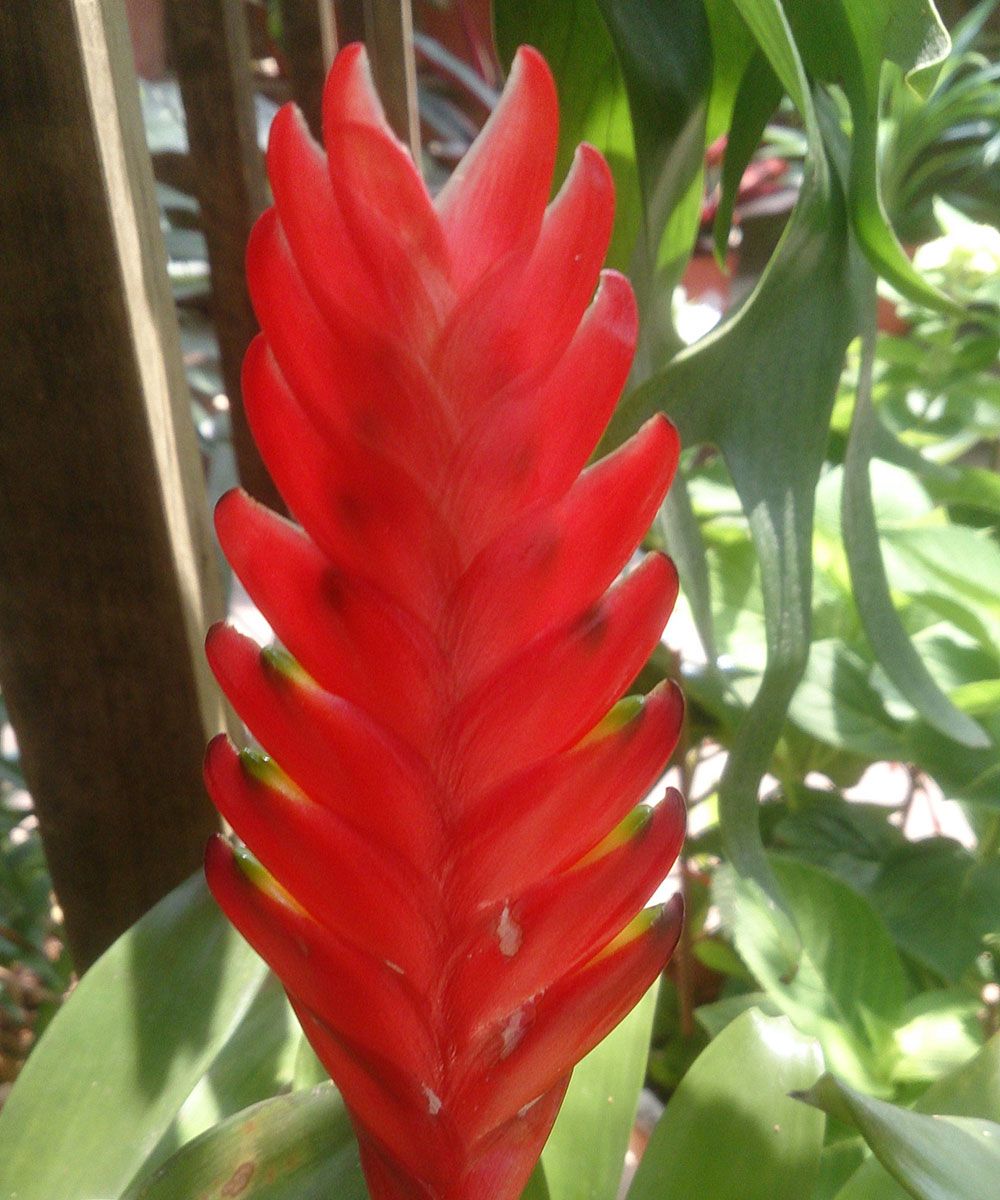
Vrieseas are a type of Bromeliad and are popular for their spectacular and long-lasting flowery spikes, which aren't actually flowers at all but bracts. Bracts appear when the plant is three to five years old, and last for months.
A Bromeliad plant will only ever produce one bract. Once it's gone, the plant will not produce another. However, most excitingly, once the bract dies, the plant will start to produce 'pups', or baby plants, from its stem. Once big enough, these 'pups' can be removed and repotted, and they themselves will become a beautiful new plant.
If your pet shows any sign of having ingested poison, such as vomiting, diarrhoea, weakness or confusion, seek veterinary assistance straightaway.

Jennifer is the Digital Editor at Homes & Gardens. Having worked in the interiors industry for a number of years, spanning many publications, she now hones her digital prowess on the 'best interiors website' in the world. Multi-skilled, Jennifer has worked in PR and marketing, and the occasional dabble in the social media, commercial and e-commerce space. Over the years, she has written about every area of the home, from compiling design houses from some of the best interior designers in the world to sourcing celebrity homes, reviewing appliances and even the odd news story or two.
-
-
 Kate Hudson's fairytale bathroom offers a lesson in '80s maximalism – and it's right on trend
Kate Hudson's fairytale bathroom offers a lesson in '80s maximalism – and it's right on trendThe actress's bathroom is a trove of chintz prints, pastel hues, and beautiful light fixtures – and trend forecasters approve
By Megan Slack • Published
-
 Can you grow a potato from a potato? Expert tips on the dos and don'ts of this growing method
Can you grow a potato from a potato? Expert tips on the dos and don'ts of this growing methodUsing seed potatoes is a tried-and-tested method for success, but what about growing store-bought potatoes or replanting ones from a previous harvest? Our experts advise...
By Drew Swainston • Published

